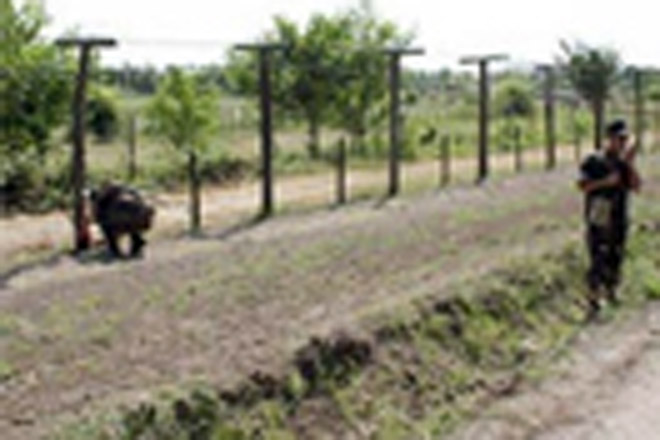North and South Korea have restored regular access across their heavily fortified border, for traffic going to and from a jointly-run industrial park , BBC News reported.
The North had severely limited access across the border since December 2008.
The border will be opened 23 times a day to traffic, up from the previous six times a day.
The reopening is the latest sign that North Korea has softened its stance against the South since its nuclear and missile tests in May.
Seoul's Unification Ministry spokeswoman Lee Jong-joo told reporters that the number of people and vehicles allowed to cross the border at one time would also no longer be restricted.
The crossing provides access to and from the Kaesong industrial park, where South Korea runs 110 factories employing about 40,000 North Korean workers - an important source of foreign exchange for the North Korean government.
The project was in danger of collapse amid recent tensions, but the visit earlier this month to North Korea by Hyundai Asan chairwoman Hyun Jeong-eun eased the cross-border relationship.
She met with North Korean leader Kim Jong-il and secured the release of a South Korean worker at Kaesong who had been detained.
She also secured agreement for cross-border talks on family reunions to restart.
South Korea's Yonhap news agency said that the two Koreas are also due to exchange the names of about 200 people seeking relatives today.
The thaw between North Korea and the outside world began when former US President Bill Clinton went to Pyongyang to secure the release of two US journalists detained for alleged illegal entry.
It was furthered by the North's expression of grief at the death of former South Korean President Kim Dae-jung, the man credited with the sunshine policy of rapprochement.
When North Korea sent a delegation of senior envoys to his funeral, those envoys also spoke with current South Korean leaders.
But there is still no movement on deadlocked international talks on North Korea's nuclear ambitions.
The North remains insistent that it wants bilateral talks with the United States and that the six-party talks involving both Koreas, China, the US, Russia and Japan are dead.
Two Koreas resume border traffic
North and South Korea have restored regular access across their heavily fortified border, for traffic going to and from a jointly-run industrial park.






